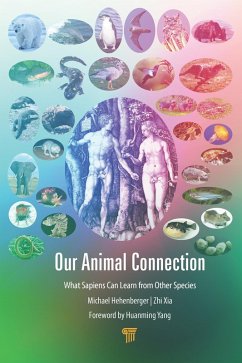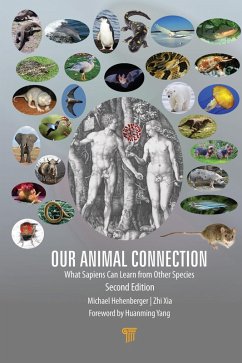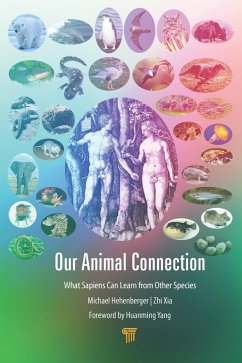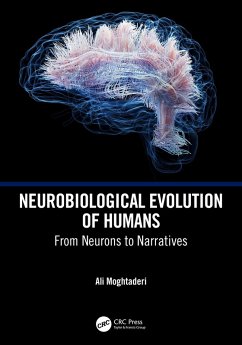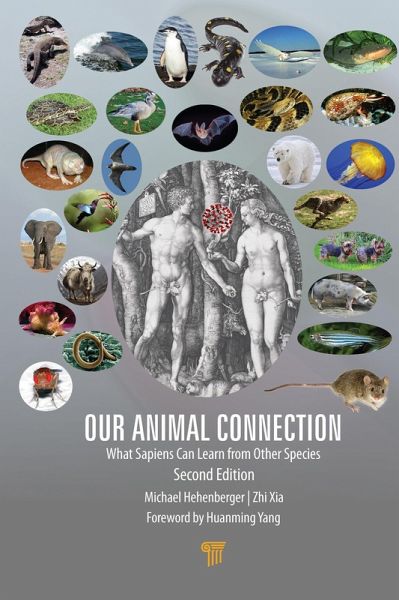
Our Animal Connection (eBook, ePUB)
What Sapiens Can Learn from Other Species
Versandkostenfrei!
Sofort per Download lieferbar
76,95 €
inkl. MwSt.
Weitere Ausgaben:

PAYBACK Punkte
38 °P sammeln!
This book covers the many ways humans benefit from interactions with other living species. By studying animals of all kinds and sizes, from microbial organisms to elephants and whales, we can learn about their adaptations to extreme conditions on the planet Earth, about the evolutionary development of specialized capabilities, and about their ways to defend themselves against predators and diseases. The authors discuss the strengths and weaknesses of Homo sapiens, and how the study of animals can make us stronger and healthier. To deepen our knowledge of genetics, molecular and cell biology, p...
This book covers the many ways humans benefit from interactions with other living species. By studying animals of all kinds and sizes, from microbial organisms to elephants and whales, we can learn about their adaptations to extreme conditions on the planet Earth, about the evolutionary development of specialized capabilities, and about their ways to defend themselves against predators and diseases. The authors discuss the strengths and weaknesses of Homo sapiens, and how the study of animals can make us stronger and healthier. To deepen our knowledge of genetics, molecular and cell biology, physiology and medicine, we need to study model organisms. To cure human disease, we can learn from animals how they have evolved ways to protect themselves. To improve human performance, we can study the animal kingdom's top performers and learn from their successes. Considering these important pointers, the authors review genetic engineering techniques that can translate our existing and future animal connections into benefits for human health and performance. Finally, they discuss the challenges associated with our animal connection: the history of pandemics caused by bacterial and viral pathogens demonstrates that there is a risk for transmission of diseases that can disrupt human societies. The recent COVID-19 outbreak is covered in detail as an example.
Dieser Download kann aus rechtlichen Gründen nur mit Rechnungsadresse in A, B, BG, CY, CZ, D, DK, EW, E, FIN, F, GR, HR, H, IRL, I, LT, L, LR, M, NL, PL, P, R, S, SLO, SK ausgeliefert werden.




